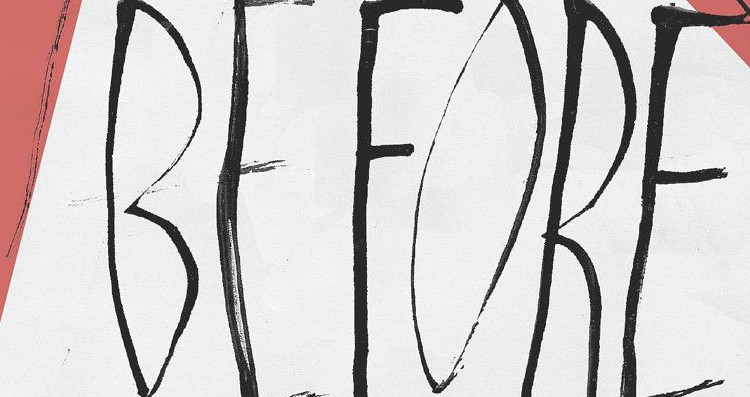Books & Culture
Falsehood as Sudden Fact
In Javier Marías’ superb fourteenth novel, Thus Bad Begins, falsehood proves to determine the future’s truth

For those who voted against him, the prospect of a Donald Trump presidency is possibly one of the gravest threats American democracy has ever faced. After all, the President Elect is a man who was described in The New York Times as “perhaps the most dishonest person to run for high office in our lifetimes,” having spouted lies not only about trade deficits and lawsuit settlements, but seemingly about his own basic personality and identity. He told the electorate, “There’s nobody who has more respect for women than I do,” and he claimed, “I’m a very nice person who gets along very well with people,” yet his past history as a misogynistic groper and a man who threatens to punch protesters in the face would appear to belie these assurances. In fact, his past history would even go so far as suggesting that his new guise as a model American and as the ideal President is based on little more than lies and fabrications.
Yet maybe, just maybe, there’s an outside chance the questionable, apparently falsified persona he’s adopted — of being the “president for all Americans” — will be the basis for the leader he’ll eventually become. Okay, such a possibility is a huge long shot, and I really don’t intend to offend anyone genuinely fearful for their future, yet perhaps there is a chance that the lies of today will shape the truth of tomorrow. As unlikely as it sounds, and as very unlikely as Trump is as a candidate for living up to his own BS, the process of falsehood going on to determine the future’s truth is the main theme of Javier Marías’ superb fourteenth novel, Thus Bad Begins. Set in the writer’s hometown of Madrid in the years immediately following the death of fascist dictator Francisco Franco, it charts fresh-faced graduate Juan de Vere as he takes a PA job with fading director Eduardo Muriel. Sent to run errands and then later to spy on those within Muriel’s inner social circle, Juan soon comes to learn not only that people can base their entire lives on lies, but that their very selves can grow snugly into them as well.
“Identity is only ever the assumption of a role or typecast.”
Yet Thus Bad Begins’ pessimistic view of identity runs even deeper than this, since it quickly becomes apparent in the first few chapters that, in the post-fascistic world Marías draws with exacting psychological detail, identity is only ever the assumption of a role or typecast. For example, upon beginning work with Muriel, Juan remarks on his new boss’ appearance, yet rather than simply describe the man’s specific facial features and physical characteristics, he perceives him through the likenesses of such classic-era actors as Errol Flynn, Ronald Colman, and David Niven. He says, “it was as if, unconsciously, he had remained stuck with the image of the male leads from the films of his childhood and adolescence.”
Such comparisons to Hollywood figures occur with other main characters in Thus Bad Begins, from Muriel’s middle-aged doctor friend, Jorge Van Vechten (“Robert J. Wilke”), to the director’s wife, Beatriz, whom he likens to “Shelly Winters.” However, despite the suspicion that they’re simply the quirk of cinephiles, the reader soon learns that Marías’ uses them to make an important point about how people identify themselves. This comes out most clearly when, after having defined the appearance of Muriel in terms of the appearance of various actors, Juan affirms that the director “was an excellent mimic,” as if to say that his resemblance to Robert Donat and Robert Taylor was less an accident and more the product of how his personality fundamentally works.
“[T]he novel lays the foundation for what follows, insinuating that identity and selfhood are little more than imitative facades.”
In making this affirmation, the novel lays the foundation for what follows, insinuating that identity and selfhood are little more than imitative facades. And it’s precisely in the attempt to crack the facade that Muriel sends Juan off on what is one of the novel’s two central plot threads. That is, he asks his young assistant to insinuate himself with the aforementioned Dr Van Vechten, who Muriel believes may have used his favored position within Franco’s Spain to behave “in an indecent manner towards a woman or possibly more than one.”
It’s not simply that exploiting and abusing women is “as low as one can go” as far as Muriel is concerned, but that Dr Van Vechten is for all intents and purposes “a highly respected paediatrician” who “had been one of the sincere ones” during the Franco era. And it’s because he’d “built a reputation as a good, kind man” that Muriel asks Juan to shadow him, since the suggestion of gross indecency re-arouses Muriel’s suspicion that Van Vechten, as well as people in general, are inherent frauds.
It’s this belief in the essential falsity of people and society that frames the rest of the novel, including the second central plot thread involving Muriel himself and his semi-estranged wife, Beatriz. As Juan narrates via monologues that often veer close to stream-of-consciousness territory, the pair live together peacefully with their three young children, yet for some undisclosed reason Muriel appears to absolutely detest his spouse. In one memorable scene, in which Juan spies on the couple from the bottom of the upstairs hallway, the older man coldly rejects her attempts to reestablish some kind of intimacy, going so far as to tell her, “I hope to be the one to bury you.”
Much of the novel’s intrigue and weight flows from the fact that it’s not entirely clear why Muriel expresses such embittered sentiments, yet one of his declarations during this pivotal scene is particularly revealing:
“If only you’d kept me in the dark. When you embark on a deception, you should maintain it right until the end.”
This is what’s most interesting about Thus Bad Begins, that Muriel and other chief protagonists aren’t opposed to falseness per se, but against inconsistent or imperfect falseness. Earlier in the novel, he informs Juan, “Pretending is essential if we are to live together,” yet he goes on to add, “here, where we’ve seen the criminals’ true faces, seen what happened, pretense is impossible.”
Unsurprisingly, this latter remark is a reference to the horrors of Franco’s regime, which tore one half of Spain against the other and, after the dictator’s death in 1975, made it incredibly difficult for the Spanish to resume living as if nothing had happened. Yet the book’s two central threads soon reveal that it’s also a reference to ‘criminals’ of a more metaphorical stripe, to those friends and relatives of Muriel who’ve damaged their relationship with him not so much by lying, but by doing something to make it impossible for him to go along with their lies. And in revealing this in a piecemeal, almost detective-novel fashion, the book becomes a powerful argument for how it’s often not deception itself that’s unacceptable, but rather its exposure and betrayal, which renders it unworkable, thereby destabilizing the society dependent on it for cohesion.
“[T]he book becomes a powerful argument for how it’s often not deception itself that’s unacceptable, but rather its exposure and betrayal.”
Given the Franco-era context of Thus Bad Begins, it’s tempting to assume that the falsity of the main characters stems mainly from the threat of violence hanging over those who didn’t conform. In at least one way, this assumption would be true, seeing as how the novel is full of striking passages that detail how those power liked to “threaten [people] with prison or even death, at least in the immediate postwar years.”
Yet once again, Marías unflinching illustration of post-Franco Spain puts forward a deeper reason for the pretenses and playacting of his protagonists, which is that there’s no essential core to their identities and selves. As such, instead of basing the direction of their lives and personal development on this core, the characters in Thus Bad Begins grope around arbitrarily for some mask or facade.
This is what Juan affirms at various points during his often deeply involved narrations, which at one point have him admit, “Maybe we never are fully formed.” In the very same sentence, he also suggests that we only “begin unwittingly to configure and forge ourselves from the moment […] we accept or reject the options offered to us or allow others to do so on our behalf.”
That the self is basically unformed and empty until it assumes available “options” is what emerges gradually over the course of his conspiracy to investigate Van Vechten, which ends up forcing him to play a role, “as if I were an actor in a film Muriel was directing.” Yet in addition to this overarching plot thread, the self’s underlying emptiness also comes out in the novel’s very style and language, which despite being conversational is occasionally as complicated, dense, contradictory, fragmented, and episodic as the fraudulent selves it portrays. Its sentences often run for entire paragraphs, and paragraphs sometimes take detours into different spaces and times, while the whole upshot of this sprawling style is to reinforce the idea that the individual is an ambiguous mess who needs readymade disguises in order to give off the semblance of unity and coherence.
“[T]he characters in Thus Bad Begins grope around arbitrarily for some mask or facade.”
Admittedly, such an account of the writing in Thus Bad Begins might make it come across as a self-consciously ‘difficult’ novel. Nonetheless, Juan’s narrations — as well as the colorful dialogs he enjoys with various members of Madrid’s literati — are remarkably approachable and inviting, if only because they contain so many observations and insights that the reader will find recognizably — if lamentably — true of life.
At one point, he muses, “We strive to conquer things, never thinking […] that they will never definitely be ours, that they rarely last.” At another, he’s told by Muriel, “Even I don’t really know you […] But then neither do you.” On their own, such thoughts serve to imbue the novel with a richly dark atmosphere, while as a whole they heighten it’s key message that the self is incomplete, that it’s vague, that it’s shapeless, and that it lacks a single, definitive ‘truth.’
And it’s on top of this pervasive mood of confusion and uncertainty that Thus Bad Begins can deliver what is arguably its main conclusion: that people become the lies they tell of themselves. Even though it would obviously be a massive spoiler to give away what happens in the novel’s second half, it’s this half which reveals and confirms this notion, with Juan saying of the hard-to-pin-down Van Vechten, “maybe other people’s false perception of him has led him to fit himself to that mould.”
Yet while the book culminates by declaring that someone’s ‘true self’ is merely whatever myth has become a habit, it also culminates by declaring, perhaps controversially, that those who call out the theatrical, phony nature of people and society are more deserving of recrimination than even the most pathological liar.

Without giving too much away, this is one of the many things the Muriel-Beatriz plot line teaches us towards its finale, and it’s essentially what Marías teaches through the novel itself. He vividly paints a Spain coming to terms with the brutality of its past, not by mercilessly bringing to justice those who’d committed heinous crimes, but by pretending that such criminals are innocent in the hope that, one day, they will indeed become innocent. But in potentially disrupting this process, those who’d reveal past crimes become malefactors themselves, since they risk preventing Spain from healing its wounds, and from flawed people pretending their way towards self-improvement. Of course, this may not be an advisable way of redeeming the past, but in arguing that it is a way, the challenging, comical, profound, and even sometimes erotic Thus Bad Begins rises up as one of the most intriguing novels Marías has written to date.









